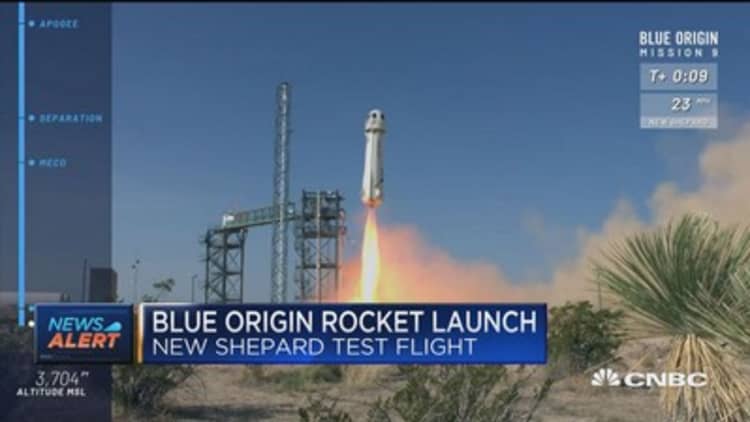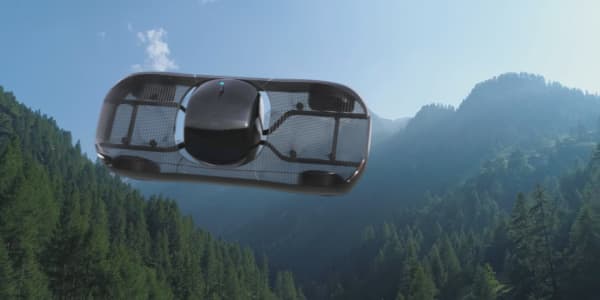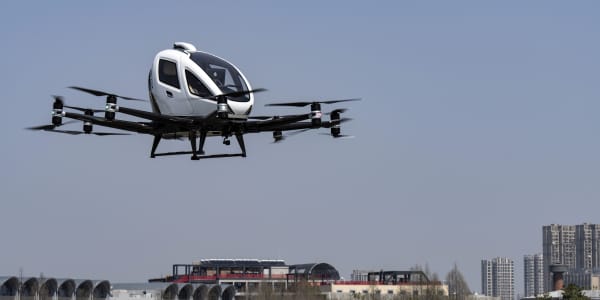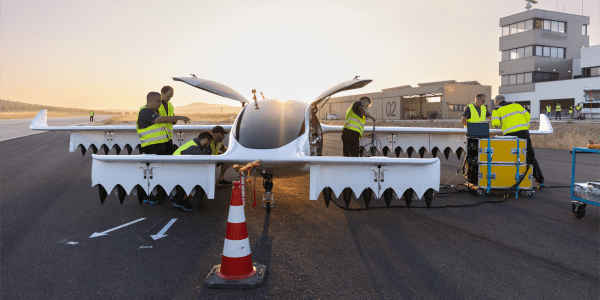
Blue Origin launched its New Shepard rocket on Wednesday for the ninth time in what the company said was a successful flight.
New Shepard — named after the first American in space, Alan Shepard — launched vertically from the company's facility near Van Horn, Texas. Blue Origin, which was founded by Amazon CEO Jeff Bezos, wants to offer tourists a ride to space, bringing passengers in a capsule up past 350,000 feet, where they would spend about 10 minutes floating in zero gravity before returning back to Earth.
The flight was "a high altitude escape motor test," which the company said would push New Shepard "to its limits" to make sure that astronauts can get away from the rocket if there is any problem during flight, also known as an abort test. Inside the capsule, which sits on top of the rocket, was Blue Origin's test dummy named "Mannequin Skywalker" – as well as payloads for gathering data from NASA, companies and universities.
The abort test happened in the vacuum of space and pushed the capsule to nearly 390,000 feet, according to preliminary data from the flight. "Mannequin Skywalker" experienced about 10 times the force of gravity during the abort test, as the capsule flung itself away from the rocket.
A few minutes later, the rocket's booster landed upright on the company's concrete pad, with the capsule touching down nearby on the desert floor, controlled by parachutes.
"This is the best possible outcome," Ariane Cornell, Blue Origin's head of astronaut strategy and sales, said during the webcast.
The company also said it had included items from its employees on board the rocket. The opportunity is a part of Blue Origin's internal "Fly My Stuff" program, which will send their belongings into space and then return them, giving employees mementos of the company's progress.
This was the second test flight for the rocket and capsule this year. In April, Blue Origin's eighth New Shepard mission launched, landed and successfully deployed the unmanned Crew Capsule 2.0, which sits on top of the rocket. The capsule features room for six, with massive windows providing expansive views of the Earth once in space.
Blue Origin will soon open flights to tourists but only after completing its own crewed flight tests, the company told CNBC on July 12. However, ticket pricing for passengers has yet to be determined, the company says.
"We will fly Blue Origin astronauts before we fly commercial passengers and haven't done any real work on passenger selection or the ticket sale process," Blue Origin said in a statement to CNBC.
Bezos has described space travel as "the most important thing" he's currently working on and the company is steadily progressing toward that goal. The private space race continues to heat up, as Richard Branson's Virgin Galactic, which is also in the late stages of its flight testing program, has sold more than 700 tickets for tourists to go to suborbital space, at $250,000 a pop.






